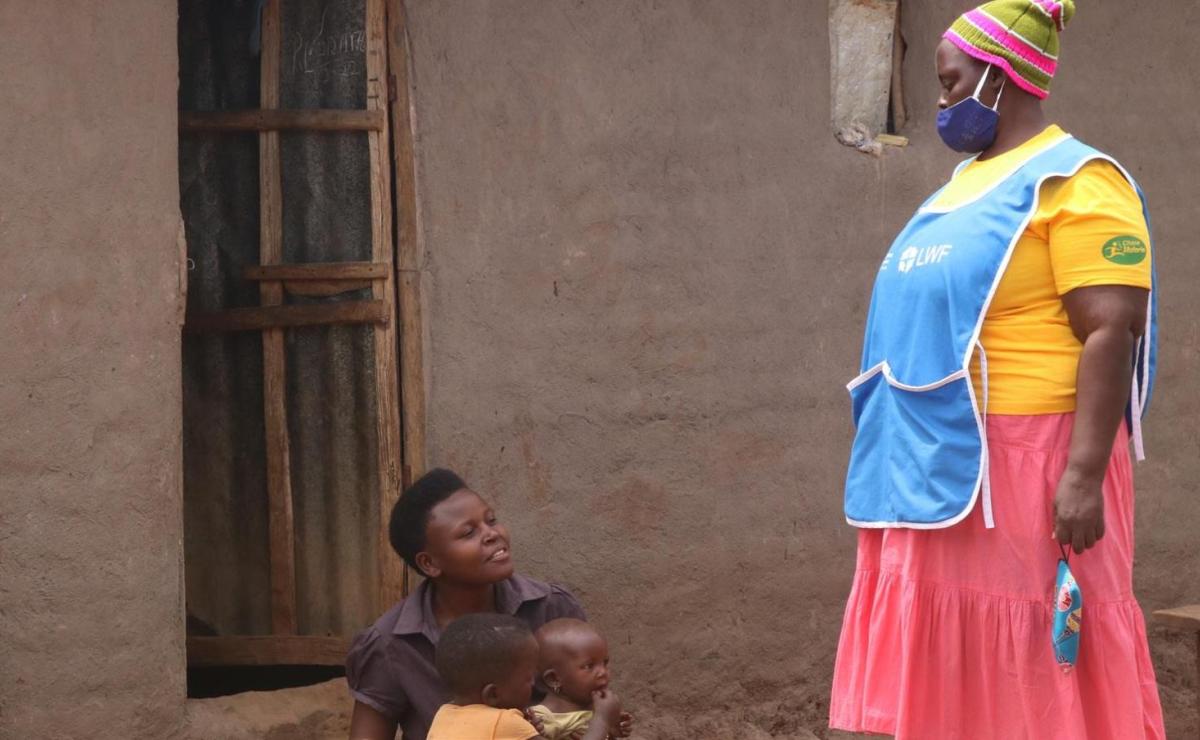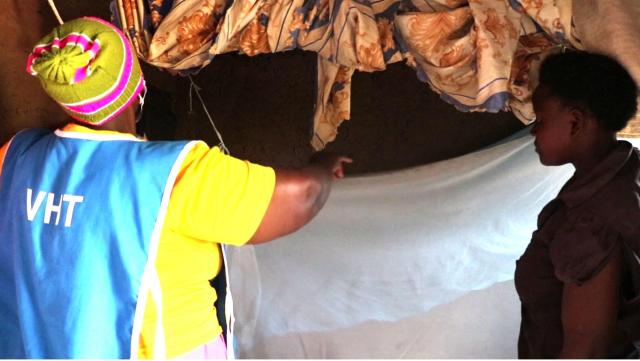Community-based interventions reduce malaria cases in selected sub-counties.

For the past five years, the cases of Malaria reported at ItakaIbolu Health centre ll have reduced more than thrice. The health centre located in Eastern Uganda's Luuka district is one of the governments funded that have benefitted from the Luuka Community Development project.
Implemented by LWF with funding from the Evangelical Lutheran Church in America (ELCA), the project aims to reduce mortality and morbidity associated with Malaria among vulnerable groups.
These include children under five years, pregnant women, persons living with HIV/AIDs. Before the project implementation, the facility would register ten infant cases of Malaria average unlike now when they have fallen drastically even in the adult, according to Ms Jane Namukombi, the nursing assistant at the facility.
"Of late, you can only get three children out of ten with malaria and others its bacterial infections, not malaria", Ms Namukombi notes.
Through radio talk shows, music, dance and drama and Village Health Teams (VHTs), among other interventions, the project targets 14,339 households in the two selected sub-counties of Waibuga and Ikumbya in Luuka district to create malaria awareness and promote health-seeking behaviour.
To identify cases in communities, VHTs were taught about symptoms like temperature, headache and fever and referred them to health facilities as soon as possible for early diagnosis and confirmation.
The VHTs also share the knowledge and debunk the myths through door-to-door visits and community outreaches, especially among the communities who visited traditional healers for treatment. It was not long before the awareness gospel sunk, changed the community mindset, and the VHTs gained public trust.
"The community started reaching out to the VHTs in case of symptoms," Ms Barbara Babirye a VHT states. LWF also provides free mosquito nets to increase access and use as malaria preventive measures, especially to vulnerable homes. Beneficiaries attest that reduced cases of Malaria have improved their productivity, household income and food security.
"I can do my work uninterrupted because we sleep under mosquito nets, and we hardly get any cases," Ms Fatuma Namaliiri, a mother of four notes.

The intervention doesn't stop at awareness creation, but VHTs also continue with routine visits
to monitor and ensure the proper use of mosquito nets. Despite being preventable, Malaria continues to claim people's lives in Uganda, and Luuka is one of the most affected districts.
According to Health Ministry, Uganda registers at least 16 malaria deaths per day with 25,000 cases. The majority of the infections and deaths are children under five years.
-END-

